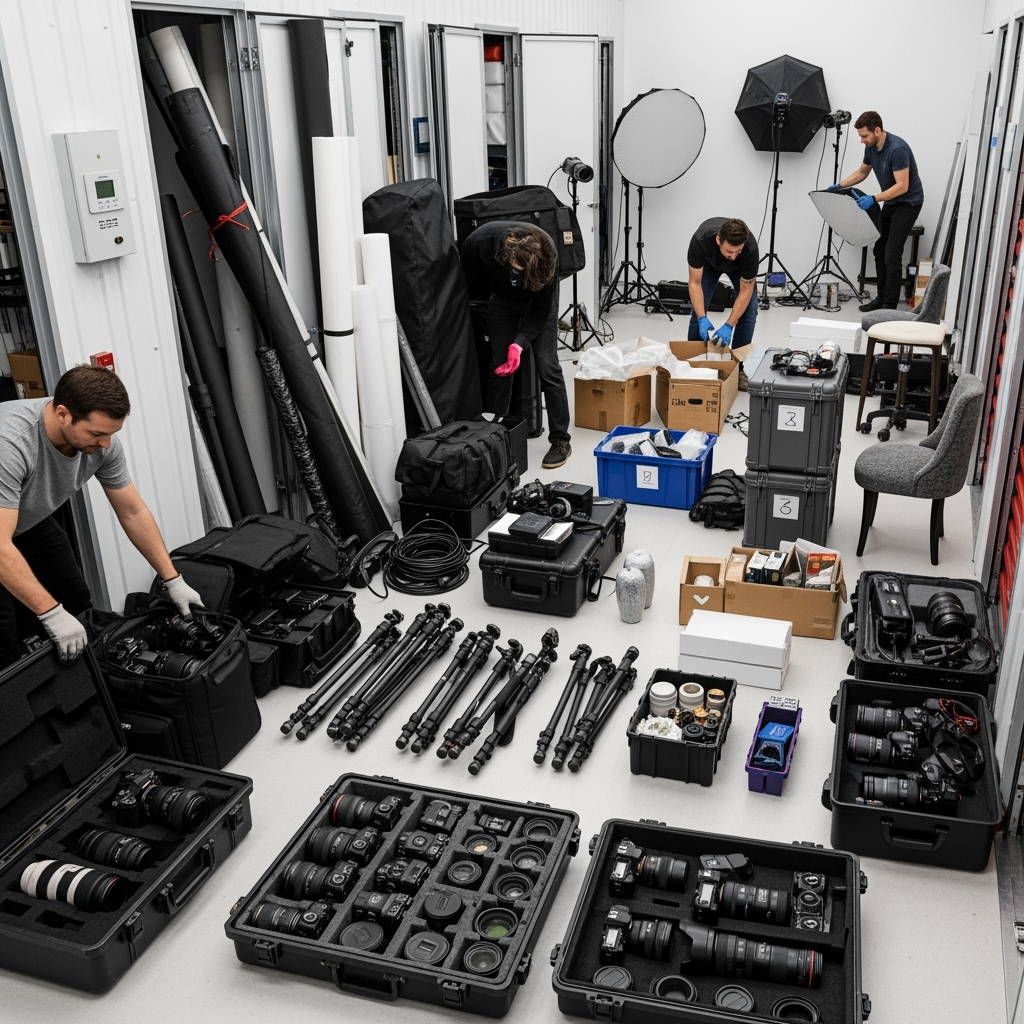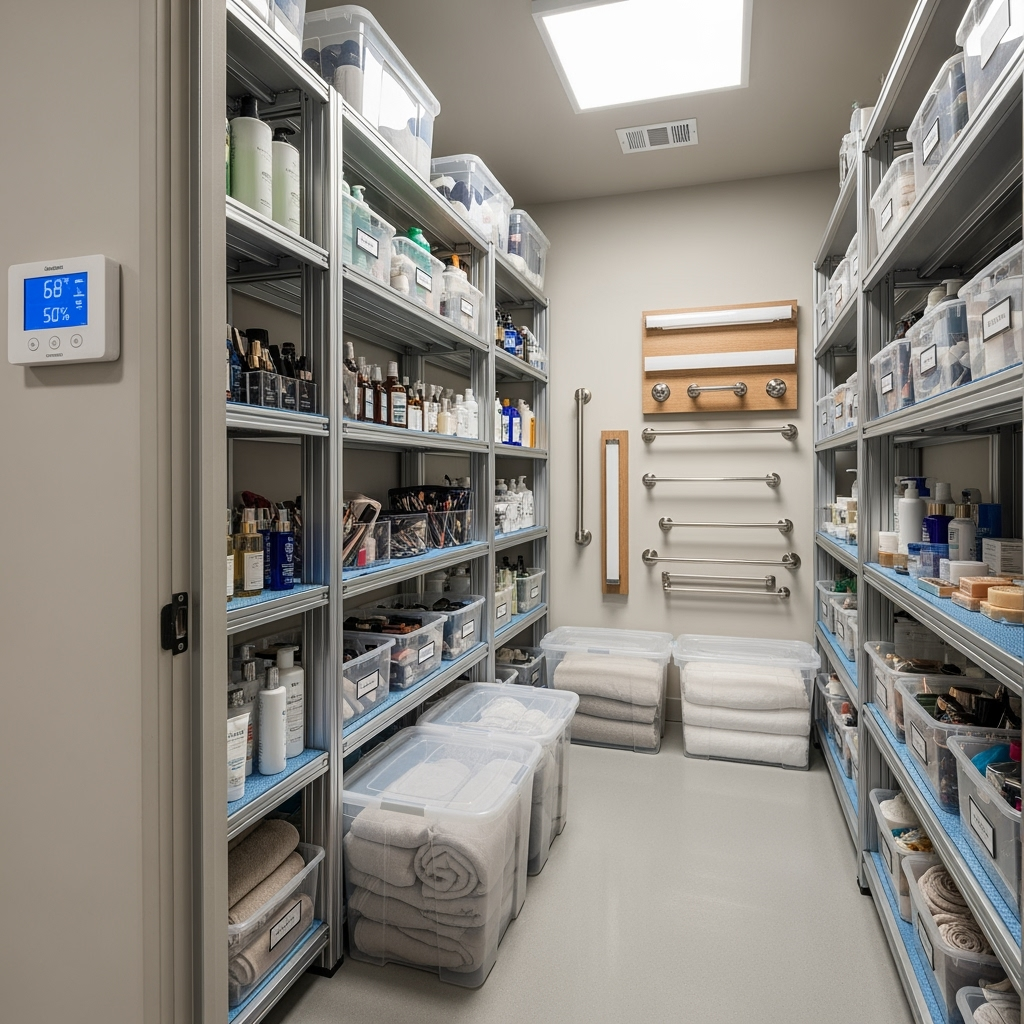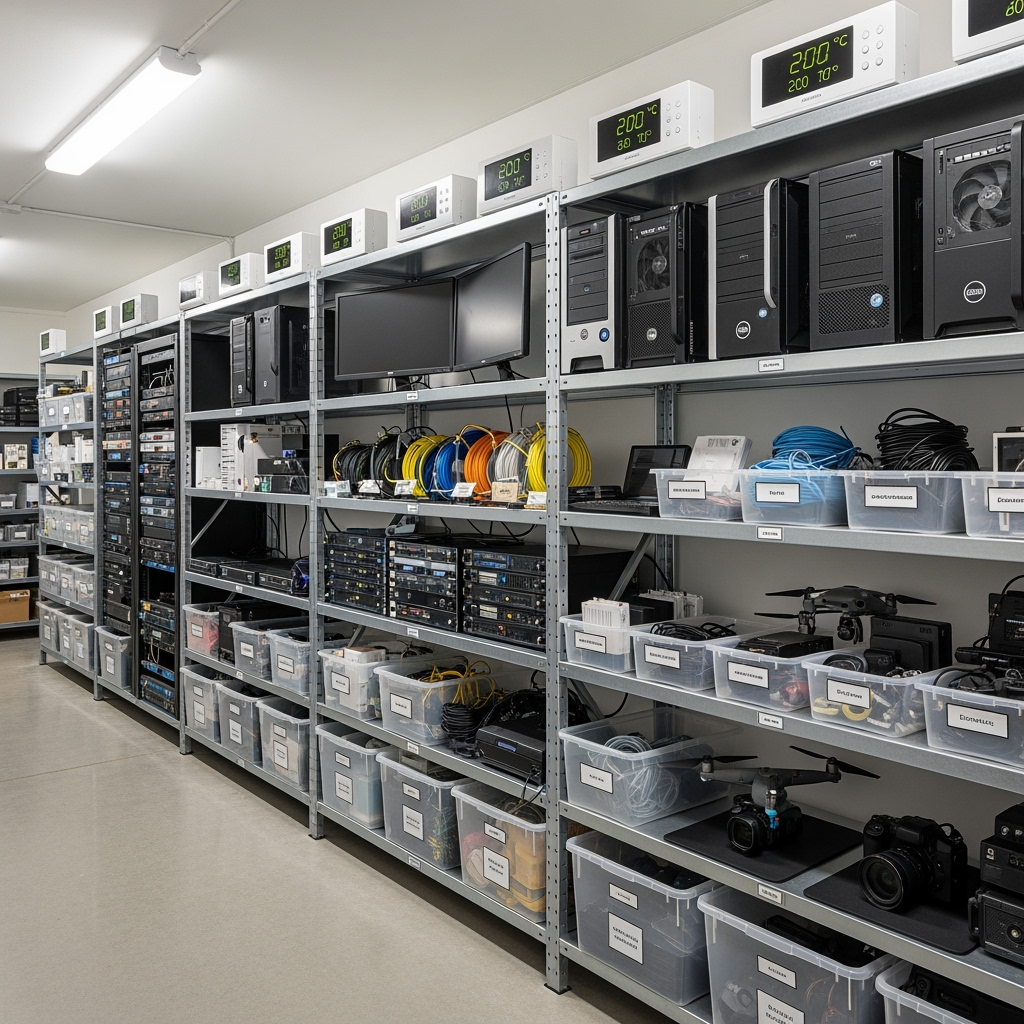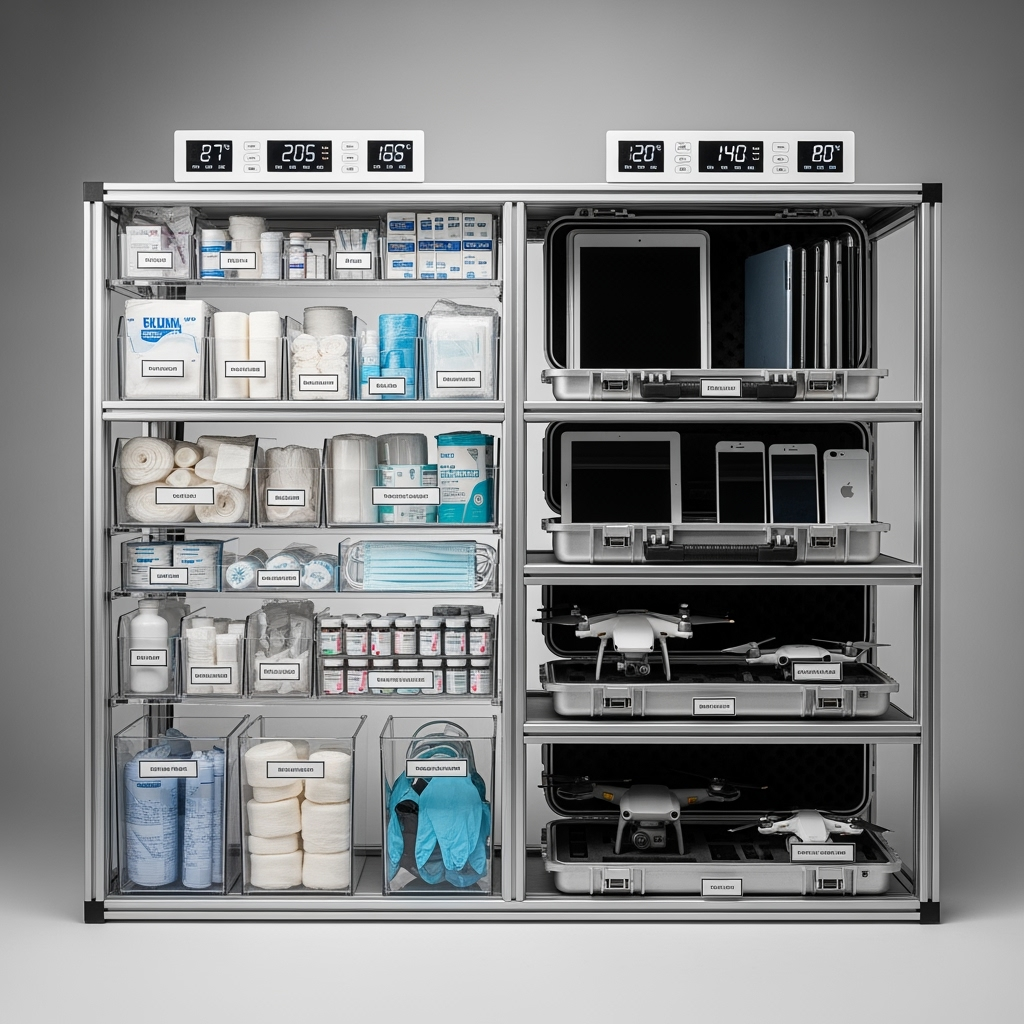Why Vertical Storage Matters in Self-Storage Units
When it comes to maximizing your storage unit’s potential, thinking upward is just as important as thinking outward. Vertical storage optimization can effectively double or even triple your usable storage space, helping you get more value from your investment while keeping your belongings organized and accessible.
Essential Tools for Vertical Storage Success
To make the most of your unit’s height, you’ll need the right equipment:
- Sturdy shelving units that can be securely anchored
- Heavy-duty stackable storage containers
- A reliable step ladder or platform
- Strong mounting brackets and support systems
- Quality bungee cords and cargo straps for securing items
Strategic Vertical Storage Planning
Before you start stacking and organizing, consider these key planning steps:
- Measure your unit’s exact height and account for ceiling fixtures
- Create a floor plan that includes vertical zones
- Map out access paths that won’t be blocked by stacked items
- Consider weight distribution and stability
Best Practices for Safe Vertical Storage
Safety should always be your top priority when maximizing vertical space:
- Place heavier items on lower levels
- Use proper lifting techniques when handling items above chest height
- Ensure all shelving units are properly assembled and stable
- Leave adequate clearance from sprinkler systems and lighting
- Create a clear walking path to access all areas
Organizing by Access Frequency
Optimize your vertical storage based on how often you need to access different items:
- Frequently accessed items: Keep at eye level or below
- Seasonal items: Store higher up
- Rarely needed items: Place at the very top
- Heavy or bulky items: Position at ground level
Smart Solutions for Different Item Types
Different belongings require different vertical storage approaches:
Furniture
Stand items like tables and chairs on end when possible, using appropriate padding and protection. Stack chairs carefully and use furniture covers for protection.
Boxes and Containers
Use uniform, sturdy boxes that stack well. Label all sides clearly so contents can be identified from any angle. Consider clear storage containers for better visibility.
Long Items
Install wall-mounted brackets for items like skis, poles, or lumber. Use vertical bike racks for efficient bicycle storage.
Maintaining Organization Over Time
Keep your vertical storage system working efficiently with these maintenance tips:
- Regularly inspect shelving and support systems
- Adjust organization as needed based on access patterns
- Keep an updated inventory list with location notes
- Clean and reorganize periodically
What to Avoid in Vertical Storage
Steer clear of these common vertical storage mistakes:
- Overloading shelves or stacking containers beyond their weight limits
- Blocking access to important areas or emergency equipment
- Using unstable or makeshift shelving solutions
- Storing temperature-sensitive items near the ceiling where heat collects
Making the Most of Corner Spaces
Don’t forget about corners when maximizing vertical space:
- Install corner shelving units
- Use corner brackets for additional support
- Create custom storage solutions for awkward spaces
Final Tips for Success
Remember these key points for successful vertical storage:
- Review your storage facility’s policies regarding shelving installation
- Keep a small step ladder or sturdy stool in your unit
- Document your organization system for future reference
- Consider climate control for items stored at higher levels
By implementing these vertical storage strategies, you can maximize your storage unit’s potential while keeping your belongings safe and accessible. Remember to always prioritize safety and proper organization for the best results.










Leave a Reply